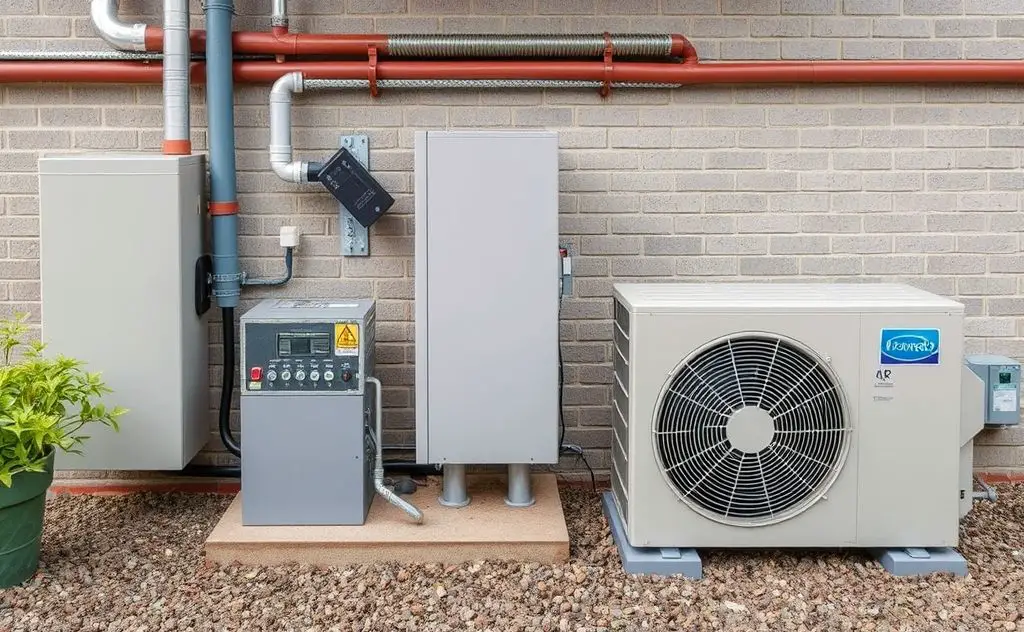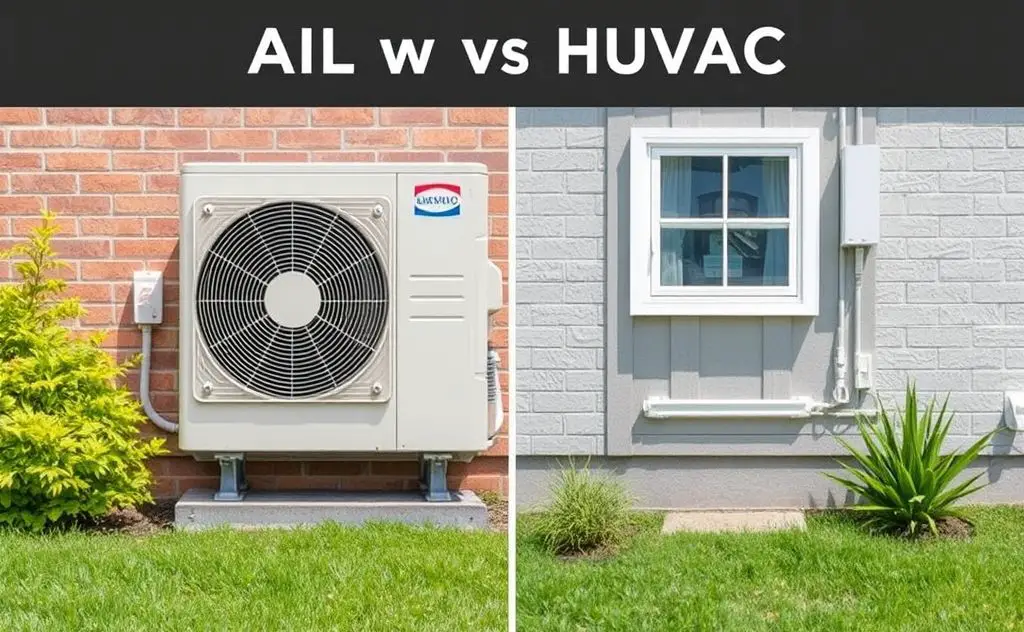HVAC (Heating, Ventilation, and Air Conditioning) encompasses all climate control systems, while air conditioning specifically refers to cooling indoor air.
When it comes to home comfort systems, HVAC and AC are often used interchangeably – but they’re not the same thing. Understanding the difference between these systems will help you make better decisions for your home’s heating and cooling needs.

What is HVAC?
HVAC stands for Heating, Ventilation, and Air Conditioning. It’s a complete climate control system that handles all aspects of indoor air quality and temperature regulation. Unlike standalone AC units, HVAC systems provide year-round comfort by combining multiple functions into one integrated system.
Components of an HVAC System
- Heating unit (furnace or heat pump)
- Cooling unit (central air conditioner or heat pump)
- Ductwork for air distribution
- Thermostat for temperature control
- Air filtration system
- Ventilation components
- Humidity controls
Modern HVAC systems like built-in gas heaters can be highly efficient and space-saving solutions for whole-home comfort.

What is AC?
AC stands for Air Conditioning, which refers specifically to systems designed to cool indoor spaces. While AC is part of an HVAC system, it can also operate independently in simpler setups.
Types of AC Systems
| Type | Description | Best For |
|---|---|---|
| Central AC | Whole-home cooling through ductwork | Larger homes with existing ducts |
| Ductless Mini-Split | Individual room units without ducts | Additions or homes without ducts |
| Window Units | Single-room cooling | Small spaces or rentals |
| Portable AC | Movable cooling units | Temporary cooling needs |
For those needing both heating and cooling in a compact package, portable AC/heater combos offer a versatile solution.
Key Differences Between HVAC and AC
Functionality
HVAC systems provide complete climate control including heating, cooling, and ventilation. AC systems only provide cooling and some air filtration.
Components
HVAC includes furnaces, heat pumps, air handlers, ductwork, and sophisticated controls. AC systems consist primarily of a compressor, condenser, evaporator coil, and refrigerant lines.
Installation Complexity
HVAC installation is more complex and typically requires professional installation. Some AC units like window models can be DIY installed.
Energy Efficiency
Modern HVAC systems often achieve higher efficiency ratings when properly sized and installed. According to Energy.gov, proper maintenance can improve AC efficiency by 15-20%.
Cost Considerations
While HVAC systems have higher upfront costs, they can provide better long-term value through energy savings and comprehensive comfort. The Air Conditioning, Heating and Refrigeration Institute notes that proper system sizing is crucial for both efficiency and comfort.
Choosing Between HVAC and AC
Your climate plays a major role in determining whether you need full HVAC or just AC:
Colder Climates
Require full HVAC systems with robust heating capabilities. Heat pumps or furnaces are essential components.
Moderate Climates
May benefit from heat pump systems that provide both heating and cooling efficiently.
Warm Climates
Might only need AC systems, though proper ventilation remains important for indoor air quality.
For specialized heating needs, consider options like indoor propane space heaters as supplemental heat sources.
Maintenance Requirements
Both systems require regular maintenance, but HVAC systems typically need more comprehensive care:
- AC systems need annual coil cleaning and refrigerant checks
- HVAC systems require seasonal maintenance for both heating and cooling components
- Both benefit from regular filter changes (every 1-3 months)
- Ductwork in HVAC systems should be inspected every few years
Proper maintenance not only extends equipment life but also maintains efficiency and indoor air quality.
